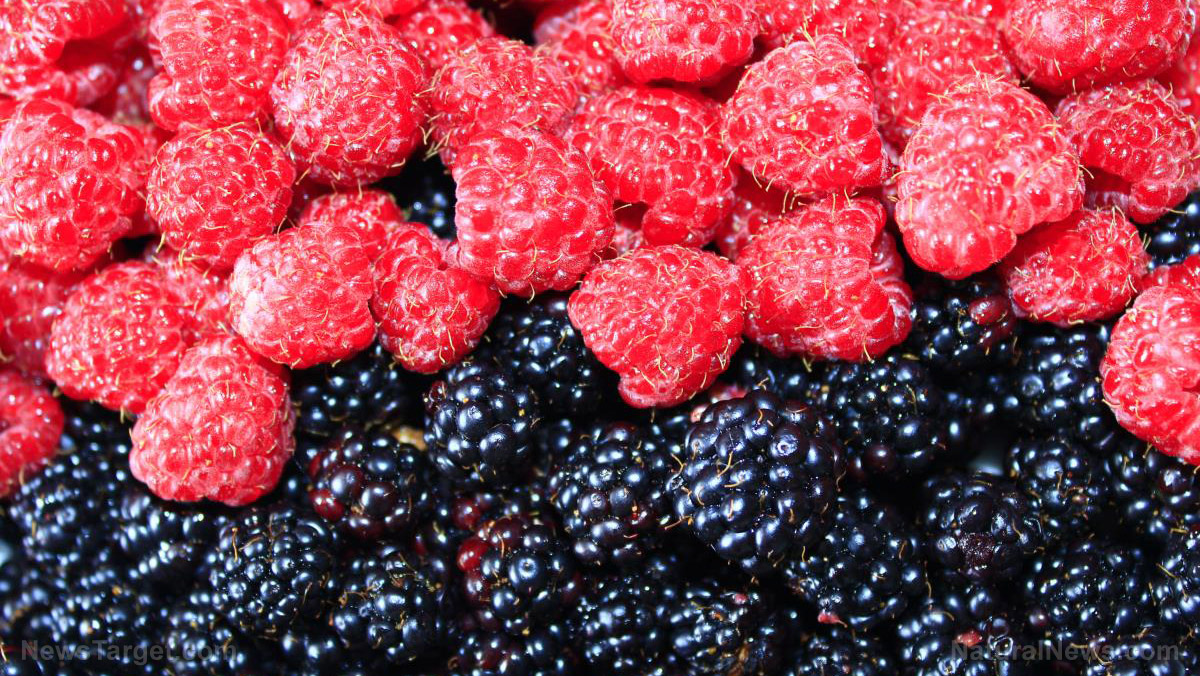Why Chinese ginseng is good for your heart
11/30/2018 / By RJ Jhonson

Chinese ginseng (Panax notoginseng), also known simply as notoginseng, is good for your heart and there are scientific studies to prove it.
Despite the similarity in their name, ginseng and Chinese ginseng are different from each other, albeit belonging to the same genus. Whereas ginseng is known for its multiple effects, including nootropic ones, Chinese ginseng is famous for its positive effects on blood circulation. In fact, taking it as a supplement is said to lead to a healthy heart.
A study published in Frontiers of Pharmacology found Chinese ginseng to have several positive effects on coronary artery disease. The researchers’ analysis showed that the plant could regulate the metabolism of lipids and the coagulation of fluids. It also supports the formation of new blood vessels, prevents cellular death, and has anti-inflammatory, anti-atherosclerosis, and anti-myocardial ischemia. It can also improve angina pectoris, the pain that accompanies coronary heart disease.
Another study, one published in Evidence-Based Complementary and Alternative Medicine, concluded that the herb does have multiple positive effects, many of which can benefit the heart. Apart from seconding the benefits mentioned in the study above, the research also discovered that notoginseng can prevent arrhythmia, the occurrence of irregular heartbeats that could be a sign of an impending heart attack.
Furthermore, it was found that notoginseng can prevent hyperplasia, the abnormal increase in the size of organs. Hyperplasia is commonly a sign of the onset of cancer. The authors of this study concluded that Chinese ginseng has protective effects on the heart.
Chinese ginseng is sometimes used to treat coronary heart disease. A study published in Chinese Journal of Integrative Medicine uncovered the mechanism behind this ability of notoginseng. Using advanced technology, the authors determined that the anticoagulant and hypolipidemic activities of Chinese ginseng enable it to prevent the formation of plaque that causes coronary heart disease.
Although some of these studies recommend further inquiry into notoginseng’s cardioprotective activity, they are excellent proof of the herb’s solid potential in boosting heart health.
What herbs support heart health?
When it comes to supplements for protecting your heart from diseases, nothing beats those that come from nature. Here are some of the best herbs for heart health:
- Garlic – Keeping your blood pressure normal is one of the most effective ways to optimize heart health. Garlic, known for its pungent smell and the delicious flavor it adds to food, is also one of the most potent herbs for lowering blood pressure. Some studies suggest that consuming garlic can reduce your blood pressure by anywhere from five to 10 percent. The herb’s effect reportedly increases the more garlic is consumed. What makes garlic such a great natural supplement for blood pressure control is how versatile – and delicious – it is.
- Hawthorn – This herb helps improve both circulation and the health of your heart. Some previous studies have found that hawthorn can lower blood pressure, while others discovered that it could improve heart function in people who have chronic heart failure. The benefits of hawthorn were once attributed to its fruits, but further studies show that its other parts offer the same beneficial effects. You may enjoy this plant’s berries as they are or in the form of supplements. It’s also possible to brew hawthorn as tea.
- Turmeric – Apart from being a prominent ingredient in curry, turmeric is also one of the most potent medicinal herbs and spices around. It contains turmeric, a compound with antioxidant effects that protect the heart – and other parts of the body – from diseases. Studies say curcumin can promote better circulation, rejuvenate heart tissues, and lower the risk of abnormal blood clots. It can also maintain the health of your arterial lining, which helps in maintaining normal blood pressure.
Get tips on how to care for your heart naturally at Heart.news.
Sources include:
Tagged Under: cardiovascular disease, Chinese ginseng, coronary heart disease, heart disease, heart health, herbal medicine, Panax notoginseng, traditional Chinese medicine



















